by Ivan Lissitzky, backend developer at Skyeng company
Hi, my name is Ivan and I am a backend developer at Skyeng. I’m not gonna tell you it was my childhood dream to become a programmer. I suppose, like many Soviet boys in the early 80’s, I wanted to become a pilot.
I first fell in love with planes around the age of four, when I flew with my parents to see my grandmother for the first time. Later, I would devour aviation-related books and magazines in my school library. The fact that we lived in a military town near a target range also played its part; the roaring sound of a jet engine would give me full-body shivers. Back then, I could tell planes apart by their sounds alone. But then, when I was about 12, I learned I wouldn’t be able to become a pilot for health-related reasons. As my dream metamorphosed into an abiding interest in aviation, my life led me on a curious journey of becoming a programmer.
In 1992, we moved to Bishkek, Kyrgyzstan,—and something very important happened: I got my first ZX Spectrum computer, and with it, my first video games. These days computers surprise no one, but in the early 90’s an owner of such a marvel would automatically become the luckiest kid around, a best friend, an enviable marriage prospect, and the toast of the town.
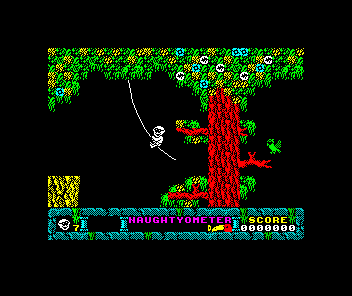
Our cassette tape had about 15 games, but the ones I was really crazy about were Dizzy and Jack the Nipper II (image taken from here); I even drew a map on graph paper for the latter. It’s too bad I didn’t save it.
Around the same time we started getting computer science lessons, and I was very lucky: we had an excellent teacher and a solid curriculum. This is when I learned that a computer meant not just games, but programming. A year later we moved, and my new school was lacking when it came to computer science; the curriculum took three years to cover what we could have learned in a year at my previous school. And because no one was going to change it for the sake of one person, I mastered graphics and assembler programs on my own ZX. I even had a thought about studying programming at the Kyrgyz Technical University.
An engineer by day, a guitar player by night
The competition for scholarships was insane; they were few and went first and foremost to school contest winners and those with straight A’s—and I was neither. We never could have afforded it on our own. So I chose the Technological Department and the field of mechanical engineering instead; I have a love for mechanisms, and the food industry has a lot to offer in terms of interesting mechanics and kinematics.
During the first two years, the boredom I got from the humanities and general subjects was alleviated by calculus, engineering graphics, physics, theoretical foundations of electronics, and—all of a sudden, starting in my second year—playing guitar.
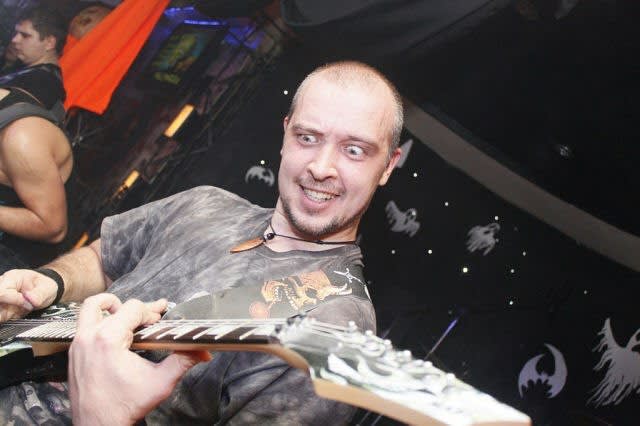
Pictured: simple human happiness
I must say that music and I were not fast friends. When I was 6, I decided I wanted to play the violin, but my school only had a piano and an accordion. My father commented that he probably wouldn’t be able to find a piano in his garrison… My dizzying career as an accordion player lasted for three months, following which the instrument was abandoned and music was over and done with until my second year of university. That was when I mastered the guitar, learning to play both by myself and with kids who participated in amateur activities. We dabbled in Russian rock together.
I was getting a real kick out of my education and continued to play in the band, and I was no longer thinking much about programming.
Cigarette-making machine operator and newspaper designer rolled into one
Time came to go to work. The Bishkek of the early 2000’s wasn’t producing much: there was a meat-packing plant that turned into a bunch of warehouses, a milk plant that was barely making ends meet, a closed cannery, and a successful tobacco factory that had been bought out by the Reemtsma company. That last one wasn’t easy to get into, but the patronage of the head of my department did the trick.
I started out at the tobacco factory as an intern, rising through the ranks to become an operator of a cigarette-making machine and then a machine adjuster. The question I’ve most often heard from my friends is, “So how do they make cigarettes?” If you’re by any chance interested, here’s a video of a cigarette-making machine. It is not the model I operated, but it’s very similar.
That’s right, I operated a machine that made filtered cigarettes! :) Check out those awesome kinematics! That thing is fire!
In 2002, layoffs began, and the second wave hit me as well. I spent the severance pay on a brand-new Pentium III Celeron.
I dove back into video games and got dial-up internet. I got curious about how websites worked. Looking for information, I began learning PHP on my own. And, some time later, I designed my first website, dedicated to our band.
After the tobacco factory I got a job as a technical designer at a local paper. It wasn’t too difficult, but once a week, before submitting each issue, I’d stay up working on the layout until 1 or 2 a.m. Me and a colleague came up with a way to automatize the layout of identically formatted car ads (whiсh took up nearly 20 pages!), and from then on the issues would be gone to press by 10 p.m.
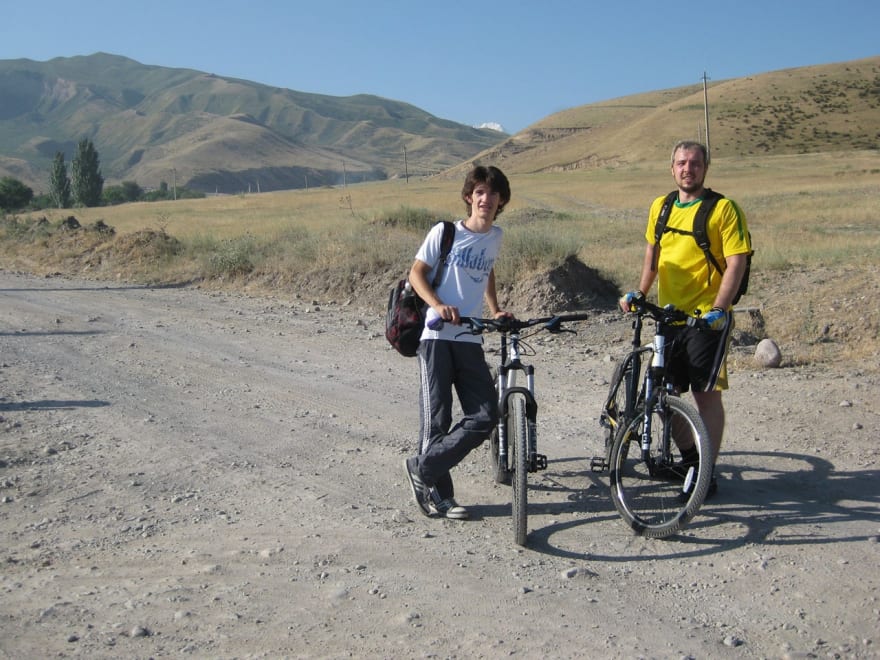
A mountain bike to keep me fit. Not exactly my passion, but I am no runner :)
At the same time, my musical career was seeing progress; there was a period when I played in two bands at once. The first one soon disbanded, as often happens with amateur lineups. The second one was a metal band my friends had asked me to join. It was more committed, plus I’d always gravitated towards a heavier type of music. We played rock venues for a few years. Making money was off the table; we could cover food and road-trip costs at best. We could have probably dedicated ourselves to evolving and getting good management and risen to the next level, but for us this was a hobby that demanded a lot of time and energy.
One time we recorded an arrangement of “Victory Day” for a town contest and unexpectedly placed first. The organizers proposed we record an album. We did, and although we weren’t satisfied with the result, we got to see the process “from the inside.” I learned what I could do on my own—and, more importantly, how. This led to me mastering sound recording programs and even to successful attempts at recording music in my own home.
Entering IT via SMS
In 2007, some friends offered me to try programming text message services (you may recall those being a thing in the mid-2000’s). However, the first couple of iterations constituted everything interesting that could be done there from the programming standpoint; what followed was standard copying and pasting. By that point, I’d already tried my hand at web developing and wanted to do it professionally, so a year later I left to work for another company where I developed a platform for job search websites. That was an amazing time spent with a fantastic team. I did a lot of PHP programming and worked there for 4 years before realizing I wanted something new: to work on products. And so in 2012, I moved to a big city that offered lots of opportunities. No, it wasn’t Moscow, which intimidated me with its population and road traffic. I opted for a slightly smaller city in Russia: Saint Petersburg.
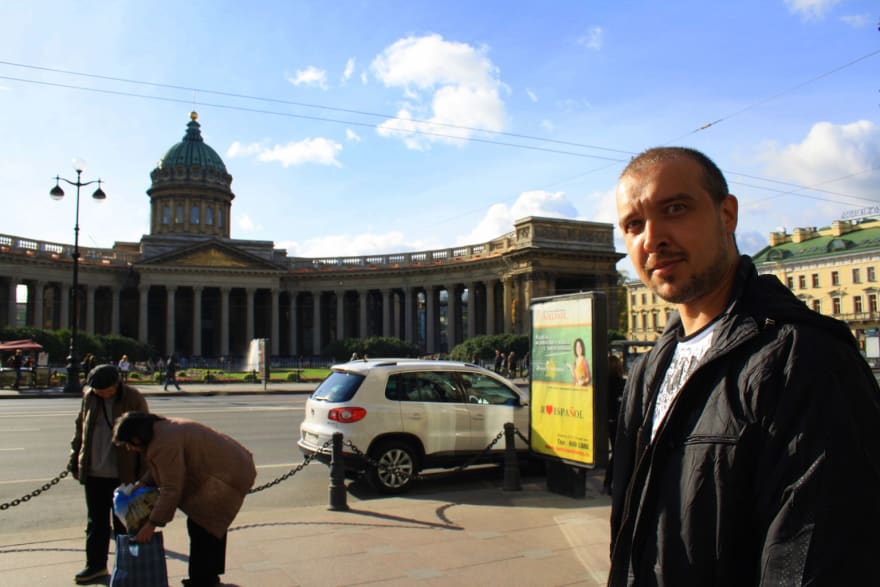
Did you know? They put bags inside bags right on the street in St. Petersburg!
Here, I fully immersed myself into web design. I learned both by myself and in battle. First, I worked on automatizing targeted advertising, then spent a couple of years designing online chats for businesses. This was when a former colleague brought me into game development, to design games for social media. This was a true change of pace: a completely different format and a total knockout! We generated ideas, developed mechanics and animation, tested hypotheses. The most exhilarating thing about game development turned out to be the instant feedback: you could upload another update and immediately get live user reactions and statistics.
For me, the coolest thing about design is achieving a clear understanding of how you should realize the given goal, of the way it all breaks down into components. That, and the glorious flow state when your thoughts turn into a clear and consistent stream of code.
I got a handle on everything pretty quickly and, somewhat unexpectedly, became a team leader. And I realized that management was not my thing at all. My days consisted of meetings, planning, overseeing the team’s activities, giving feedback. At night I felt like a squeezed lemon, but without the sense of having done anything productive. Whatever coding I did was sporadic; there was no time to really get into it. I got so burned out I found another job practically in a day. And so I left to develop marketplace platforms.
In April 2020, we got transitioned to remote work. I’d never thought much about working from home before, but life had other plans. Communication with colleagues became more difficult; every problem started taking more time to solve. I got a fresh look at the project we were working on. I realized I wanted not to solve managers’ problems, but to work on products made for people—the kind of product made by Skyeng, for example. I was attracted by the fact that this place was truly about making its clients’ lives easier and improving their customer experience. Now I play a part in that, too :)
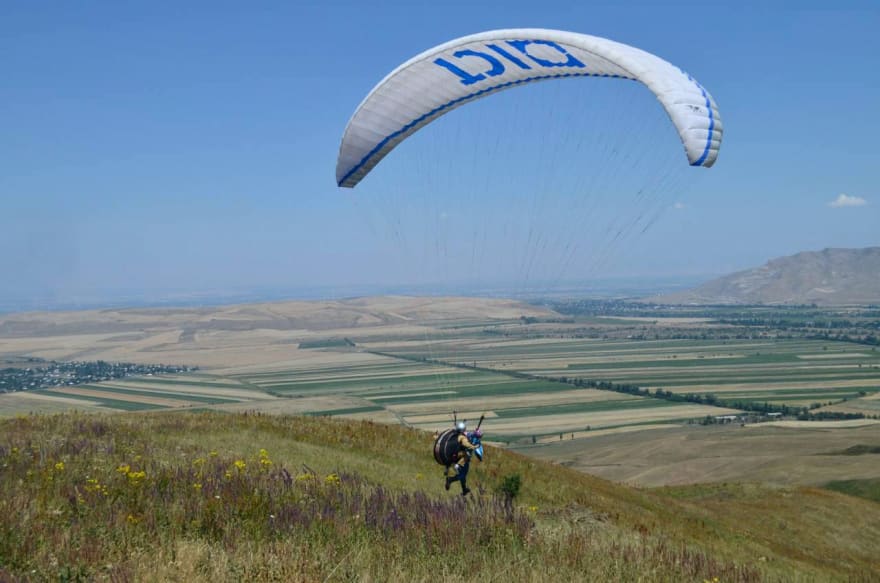
Flying substitution :) The instructor’s in the air; the healthiest mules keep running.
What happened to the dreams of flying?
Flight simulators have entered my life. The first time I tried to “fly” was back when I had the Spectrum, but that was nothing. About 10 years ago it suddenly occurred to me that flight simulators must have become fairly realistic by that point. I promptly installed Microsoft flight simulator X. For my money, it has an excellent beginner’s course on piloting built in. It offers the foundations of piloting and navigation for use in visual flights as well as the more advanced instrument flights.
Generally speaking, flight simulators differ from regular video games in the sense that they do not aim to entertain by themselves. It’s up to you to decide what you are going to do, whether it’s trying to land in challenging conditions, flying over mountains, or completing an online flight through VATSIM where you have to communicate with live air traffic controllers the way you would during an actual flight.
In these simulations, it’s equally cool to enjoy the view from the cabin and to land in bad weather. The plane gets tossed around, and you fly on instruments through the clouds. You follow your course, and… whoa! You’re flying straight towards the runway! You correct your steering angle, your thrust, and you get closer and closer... You’ve touched the ground! You align with the runway, hit the brakes, turn onto a taxiway, and… WHAM! It hits you!
So, in its own way, the dream came true. Right now I’m planning on upgrading my PC and trying out the new Microsoft Flight Simulator 2020. If you too once wanted to become a pilot but ended up a programmer, don’t feel too bad about it—and try a flight simulator :)

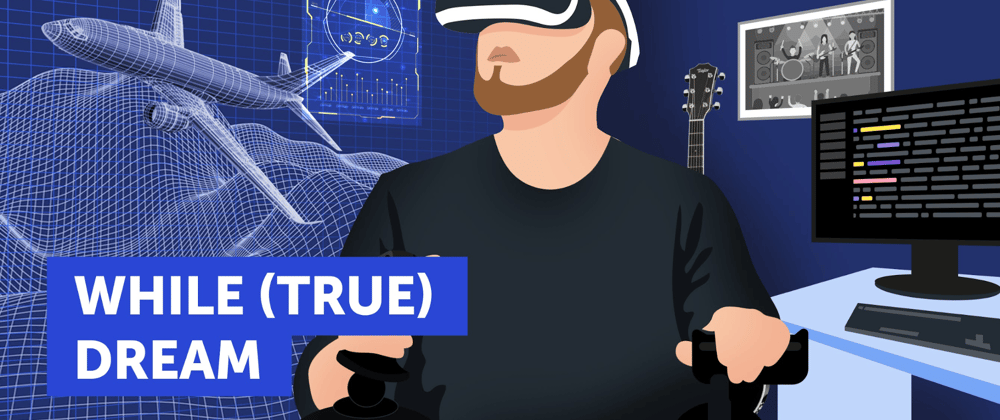


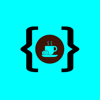
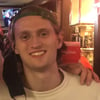

Top comments (0)